An estate plan is a comprehensive set of legal documents outlining how a person’s assets will be managed and distributed upon death or incapacitation. It is essential to have an estate plan to ensure that your loved ones are taken care of and that your assets are distributed after death.
An estate plan typically includes several legal documents, such as a will, a trust, a power of attorney, and a healthcare directive. These documents work together to ensure your estate is managed and distributed according to your wishes. But which things should people remember?
1. Write a Will
A will is a legal document that outlines your wishes to distribute your assets after your death. It is essential to have a will, regardless of your age, family situation, or the size of your estate. Without a will, your assets will be distributed according to provincial laws, which may not align with your wishes. When drafting your will, it is essential to consult with a lawyer to ensure that it is legally binding and covers all necessary details.
2. Write a Living Will
A living will is a legal document that outlines your wishes for medical treatment if you become incapacitated and unable to communicate. It is also known as an advance directive. A living will is essential because it ensures that your wishes for medical treatment are respected, even if you cannot communicate them. It is necessary to discuss your wishes with your family and healthcare provider and ensure that your living will is accessible in case of an emergency.
3. Consider a Living Trust
A living trust is a legal document that allows you to transfer ownership of your assets to a trust while you are still alive. The trust then manages and distributes your assets according to your wishes after your death. A living trust can help avoid probate, which can be lengthy and costly. It is essential to consult with a lawyer to ensure that your living trust is legally binding and covers all necessary details.
4. Add a Life Insurance Policy
A life insurance policy is integral to an estate plan because it financially supports your loved ones after death. The proceeds from a life insurance policy can be used to pay for funeral expenses, debts, and other expenses. Regularly reviewing your life insurance policy is essential to ensure it meets your needs.
Another key benefit of having a life insurance policy is that it can help to pay estate taxes. If you have a large estate, your beneficiaries may be required to pay taxes on their inheritance. It can be a significant financial burden; sometimes, it may even force them to sell assets to cover the tax bill.
5. Double-Check Beneficiary Names
When creating an estate plan, it is essential to double-check the beneficiary names on all of your accounts, including bank accounts, retirement accounts, and life insurance policies. The beneficiary named on these accounts will receive the assets upon your death, regardless of what is outlined in your will or living trust. Reviewing beneficiary designations is essential, especially after significant life events such as marriage, divorce, or childbirth.
Conclusion
Creating an estate plan is essential to ensuring that your loved ones are taken care of and that your assets are distributed according to your wishes. Remember to write a will and a living will, consider a living trust, add a life insurance policy, and double-check beneficiary names. Consult a lawyer to ensure your estate plan is legally binding and covers all necessary details. Review your estate plan regularly to ensure that it still meets your needs.
If you’re looking for an experienced and dedicated estate lawyer in Abbotsford to assist you with the complex process of wills, estate planning, and asset division, look no further than Pathfinder Law. Our legal experts are here to provide you with comprehensive and personalized assistance every step of the way. Contact us today to schedule a consultation, and let us help you protect your assets and secure your legacy.


